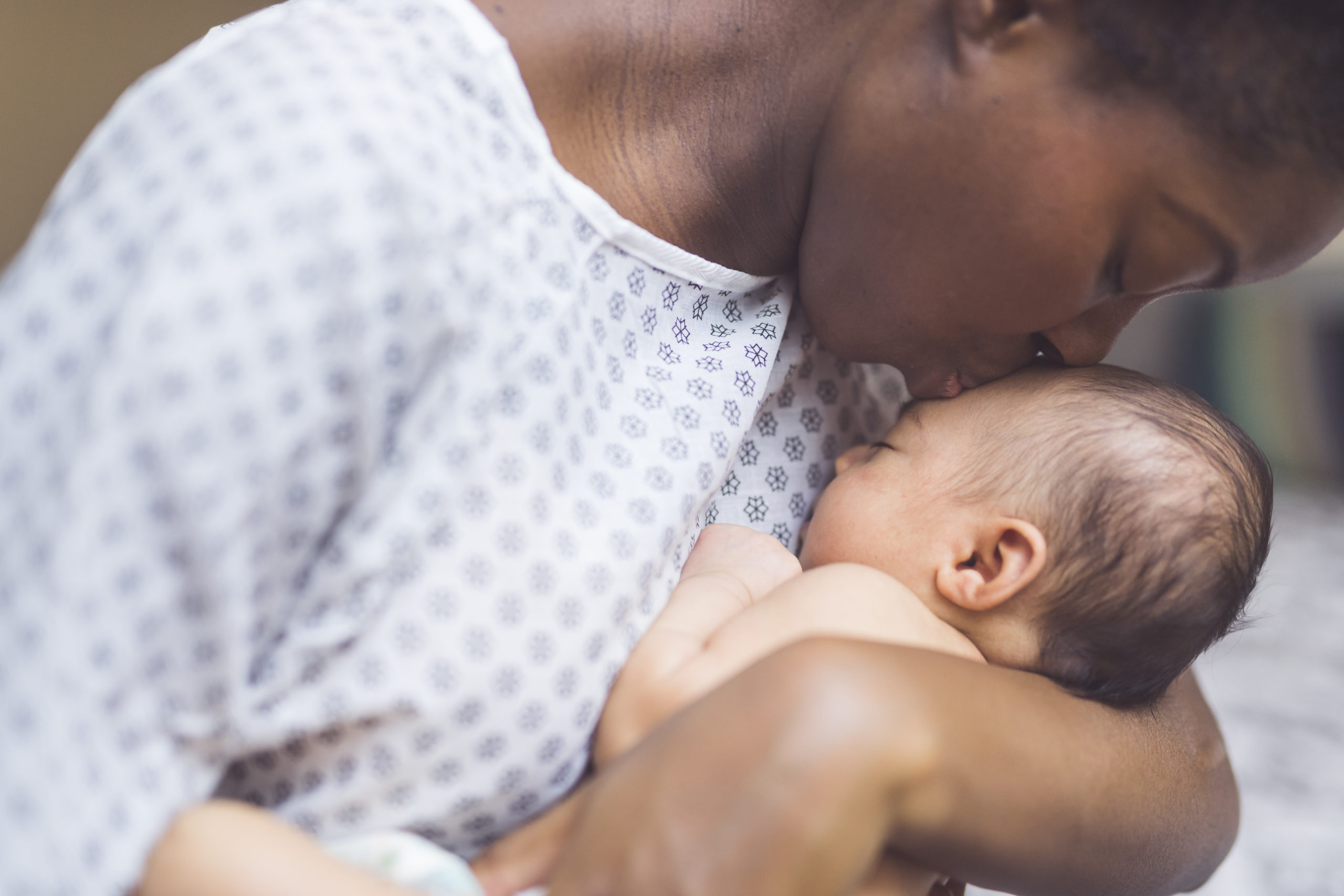Abortion rights, women of color, and LGBTQIA+ people are under attack. Pledge to join us in fighting for gender justice.

Polling that the National Women’s Law Center (NWLC) conducted with Morning Consult in December 2023 shows that Black, Latinai, and white women who have ever experienced pregnancy deal with a range of conditions brought on by pregnancy or childbirth and believe that many of those conditions worsened because of social and economic factors, like income, education, community, and safety.ii
Black, Latina and white Women who have experienced pregnancy report struggling with numerous conditions that were brought on by their pregnancies or childbirth.
- Black women, Latina women, and white women who have experienced pregnancy report that the conditions most commonly brought on by pregnancy or childbirth, identified from a list of conditions,iii include problems with sleeping, anxiety, and depression.
- Among the women polled who have experienced pregnancy, 35% reported that their experience with pregnancy or childbirth brought on anxiety, including 43% of Latina women, 31% of white women, and 30% of Black women.
- Among the women polled who have experienced pregnancy, 32% reported that their experience with pregnancy or childbirth brought on problems with sleeping, including 33% of Latina women, 32% of white women, and 31% of Black women.
- Among the women polled who have experienced pregnancy, 29% reported that their experience with pregnancy or childbirth brought on depression, including 32% of Latina women, 28% of white women, and 27% of Black women.
 Source: Morning Consult and NWLC survey of 1498 U.S. adult women conducted December 9 to December 14, 2023.
Source: Morning Consult and NWLC survey of 1498 U.S. adult women conducted December 9 to December 14, 2023.
Black, Latina and white women who experienced physical and mental health conditions due to pregnancy report that social and economic stressors worsened those conditions.
Of the three groups of women polled, those who have experienced pregnancy:
- And who reported dealing with anxiety, 82% agree that social and economic stressors worsened that condition.
- And who reported dealing with depression, 81% agree that social and economic stressors worsened that condition.
- And who reported dealing with chronic headaches or migraines, 81% agree that social and economic stressors worsened that condition.
- And who reported dealing with problems with sleeping, 76% agree that social and economic stressors worsened that condition.
- And who reported dealing with joint pain, 72% agree that social and economic stressors worsened that condition.
- And who reported dealing with pelvic pain, 51% agree that social and economic stressors worsened that condition.
Lack of health care coverage caused nearly one in three women to forgo care for the unresolved physical, mental, or emotional changes caused by their pregnancy and childbirth.
- Nearly one-third of the women polled who have experienced pregnancy say that they did not receive care to address the unresolved physical, mental, or emotional changes caused by their pregnancy and/or childbirth.
- This includes 28% of Black women, 37% of Latina women, and 31% of white women.
- Sixteen percent of the women polled who have experienced pregnancy say that they did not receive care because their health care coverage was not enough to cover said care.
- This includes 15% of Black women, 15% of Latina women, and 18% of white women.
- Sixteen percent of the women polled who have experienced pregnancy say that they did not receive care because they did not have health care coverage.
- This includes 13% of Black women, 22% of Latina women, and 13% of White women.
 Source: Morning Consult and NWLC survey of 1498 U.S. adult women conducted December 9 to December 14, 2023.
Source: Morning Consult and NWLC survey of 1498 U.S. adult women conducted December 9 to December 14, 2023.
Health care policymakers must ensure health care coverage is comprehensive and meets the needs of Black, Latina and white women impacted by health conditions caused by pregnancy and/or childbirth that were worsened by economic and social stressors, while also addressing the larger social and economic issues causing these stressors.
Acknowledgment
The author would like to thank Gretchen Borchelt, Marie Cole, Stephanie Hernandez, Sarah Javaid, Kamilah Kerr, Dorianne Mason, Jasmine Tucker, and Hilary Woodward for their contributions to reviewing, designing, and disseminating this fact sheet.
Read the official factsheet here.
i Latina women in this survey refer to all women who answered “yes” to the following question: Are you, yourself, of Hispanic origin or descent, such as Mexican, Puerto Rican, Cuban, or some other Spanish background?
ii The national poll was conducted between December 9 and December 14, 2023, among a sample of 1,498 U.S. women ages 18+, including 502 white women, 497 Black women, and 499 Latina women. The interviews were conducted online, and the data were weighted to approximate a target sample of U.S. women based on age, gender, race, educational attainment, region, gender by age, and race by educational attainment. Results from the full survey have a margin of error of plus or minus 4 percentage points. All results are calculated with demographic post-stratification weights applied.
iii List includes: depression, anxiety, chronic headaches/migraines, tooth loss, problems with sleeping, joint pain, problems with eating, postnatal PTSD, pelvic pain, type 2 diabetes, and incontinence.
